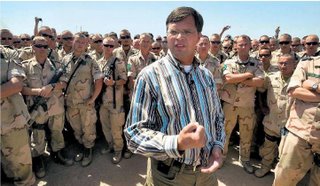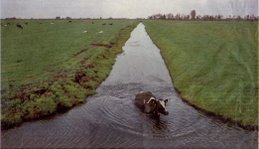And it is not bad, that the European Commission, Council and Parliament are using the accession process to help modernising forces in the country, to combat corruption, enhance democratic representation, empower civil society, create correct market conditions and make the justice stronger.
A Bulgarian observer said (31/8/2006) in EUobserver.com:
"It would be fair to mark the latest positive developments, something that has escaped from the attention of Western media."Indeed, a difficult accession process as the Bulgarian and the Rumanian ones, could be helped enormously, when public opinion in the EU would get acquainted with successes, failures and dilemmas that come up during it. Only specialised (web-) publications like TOL (“Transitions On Line”) follow these processes with attention.
"For the first time in its difficult transition, Bulgaria will see a number of high officials appearing in court and probably being sentenced to years of imprisonment. The move may look designed to appease Brussels ahead of its crucial report, to be made public on September 26. But the real reason for these developments taking place now is the arrival in office last February of a new chief prosecutor - Mr. Boris Velchev, former counsellor to president Georgi Parvanov.Here seems to come up an operation like Italy’s « Mani Pulite », an action led by courageous prosecutors and judges, that cleaned up a great part of the corrupt mess in (Northern) Italy.
Seven lost years
His predecessor Nikola Filchev was a total failure, he was suspected of mental problems and even complicity with the mob. This may not be proven, but in any case his style, adopted by many other high prosecutors, have caused great harm to Bulgaria and its image. The procedure for having the prosecutor general replaced being too complex, the whole country had to wait until the expiration of his seven-year term.
Mr Velchev managed very quicky to rid himself of undesirable prosecutors after exposing to the media the vast record of their 'unfinished business.' We learned from Mr Velchev what everyone suspected: dozens of highly sensitive investigations had been 'forgotten' for years in drawers by the magistrates. "
As we know, what dangers the prosecutors and their families got exposed to in eighties and nineties’ Italy, a vigilant public attention to what is happening, could help to suppress slander, sabotage and even life attempts by some established authorities.
If we do nothing now, it may be too late.





